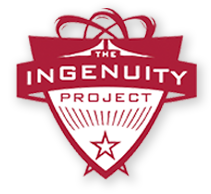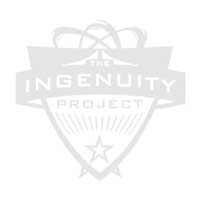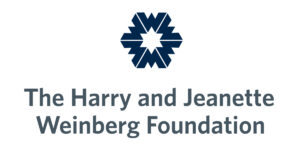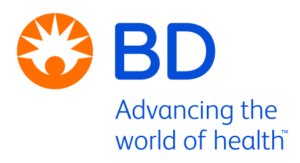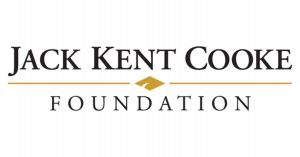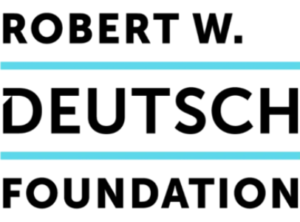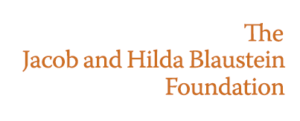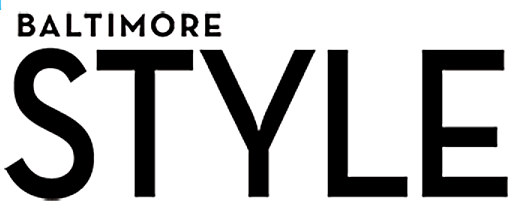
How the ambitious Ingenuity Project is elevating the Baltimore City public school option
By Christine Grillo
TUESDAY , JANUARY 12 2016
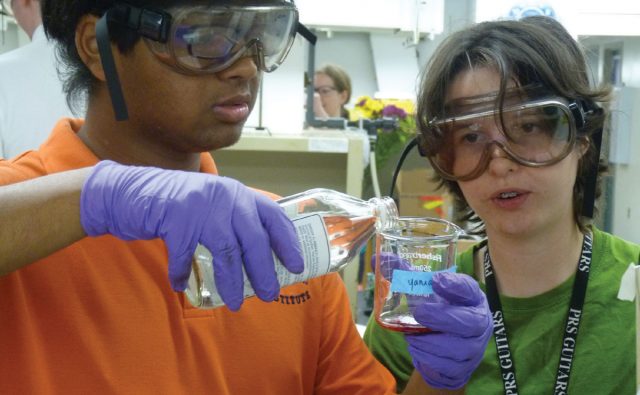
Got math? How about science, technology and engineering? The Ingenuity Project—a free-to-students program that’s integrated into four Baltimore City public schools—offers megadoses of STEM classes to advanced learners in math and science. With several new initiatives underway, the program is evolving to engage students in even more meaningful ways.
Twenty years ago, Ingenuity was created to give Baltimore City students a competitive edge in math and science. Conceived of and funded by the Abell Foundation, the program’s overarching goal is to help students understand the value of research. “We want these kids to see themselves as future scientists, statisticians and engineers,” says Lisette Morris, the program’s executive director.
In its first year in 2005, an Ingenuity student, Ryan Harrison, was a finalist at the Intel Science Talent Search, one of several national and international science competitions at which Ingenuity students shine brightly every year. “Recently, one of our students, Phoebe Sandhaus, used an original dataset to create a new algorithm for analyzing a white dwarf [star] at an international science and engineering fair in Pittsburgh,” says Morris. “These competitions change students’ lives—they can lead to scholarships, national attention, admission into great colleges.”
Last year, for the fourth year in a row, an Ingenuity student won a grand prize at the Baltimore Science Fair at Towson University. Darius Johnson, who is now in his second year at Harvard as a Gates Millennium Scholar, the United Negro College Fund’s flagship scholarship program, won first place for his study of an immune system response to a retrovirus, “Characterization of T Cell Receptor Clonotypes in an SIV Infected Pigtailed Macaque.”
Bonnie Legro, the senior program officer of education at Abell, says, “We fund Ingenuity because it continues to set a high bar for academic expectations and outcomes within a school system that is often challenged to allocate resources to advanced learners.”
Darius Johnson, pre-med at Harvard and majoring in philosophy and health policy, believes that he benefitted most from Ingenuity’s research practicum. “It prepared me for a lot of the classes I’m taking now, not just chemistry and bio, but everything,” he says. “I discovered that not only did I enjoy working in a lab, but I liked doing presentations and writing papers. I learned that I like articulating my ideas to people.”
In Baltimore City there are 39,000 students in public middle and high schools. This year, 540 of those students are enrolled in Ingenuity programs, having taken the placement test and emerged with scores in the highest ranks. In middle school, students at Hamilton, Mt. Royal and Roland Park tackle research problems and study topics ranging from biology to physics. By the time they get to the high school program at Baltimore Polytechnic (known affectionately as “Poly”), they take classes with names like Advanced Topics in Calculus and Probability and Statistics. Some take college classes at Johns Hopkins University through its Future Scholars program: Applications of Vector Algebra or Differential Equations might be on offer.
In high school, students work with mentors from the fields they’re most interested in. Most of those mentors come from the fields of science and math, but Morris is expanding the board of directors to include more professionals and business owners in the fields of tech and engineering. “We’re looking for professionals in STEM who can inspire students—someone who wants to be a board member or take on a leadership role,” says Morris.
This past November, Ingenuity launched a new initiative called STEM Capstone Challenges. Concentrated in the three middle schools and intended to introduce students to what it’s like to be an engineer, it’s a 20-week project with teams of three to five students who complete one project each. The teams design research, build a prototype and fix the prototype. This year, Ingenuity partnered with the Chesapeake Bay Foundation (CBF), and the capstone centers around reducing nitrogen pollution in the bay. More specifically, the research question they are exploring is: How can Baltimore City improve its infrastructure to prevent and reduce the amount of nitrogen reaching the Chesapeake Bay?
Since this is its first year, the process should be interesting. “We’re hoping for innovation,” says Morris. “The teachers are excited but understandably nervous.”
“The Capstone Challenge gives real-world meaning to what we learn in the classroom,” said Rogie Legaspi, a seventh-grade life sciences teacher in the Ingenuity program at Hamilton Middle. “I’m excited because they’re excited.”
The idea is that every year they’ll do a different project. The Capstone Challenges are intended to help students dig deeply into design and engineering activities, and the curriculum is aligned with Next Generation Science Standards, the emerging model that will be adopted by states over the next several years. Kicking off the project last November was keynote speaker Joshua Barnes from Harbor Designs, an engineering design firm in Baltimore, who spoke with students about the fun—and challenges—involved in innovation and creation.
“This is the perfect opportunity to combine what CBF excels at—restoration and education,” says Adrienne Shevchuk of CBF. “Kids tend to think creatively and outside the box, and that’s what we need in our environmental stewards—every idea, no matter how big or small, is worth trying. They are enthusiastic and passionate, and throw themselves at an idea, no holds barred. That’s what we need!” In the end, the students get to do projects with real-life applications, and CBF gets more than 500 new environmental stewards.
As the middle-school students toil away at their team projects, the Ingenuity Project will continue to recruit new board members, woo new mentors and, of course, raise more money for materials like telescopes and wet lab materials. “We’re meeting kids where they are,” says Morris. “They deserve to be in a classroom with other students who have the same gift for math and science.”
BY THE NUMBERS:
- Ingenuity Class of 2015 at Baltimore Polytechnic
- Students with perfect 800 SAT scores: 5
- Average GPA: 3.74
- Grand Prize in Physical Sciences, Baltimore Science Fair: 1
- Special awards: 33
- JHU Scholars: 6
- JHU Future Scholars: 3
- Carson Scholars: 2
- National Honor Society inductees:15
- College acceptances : 100 percent
- Scholarship awards: $7 million
